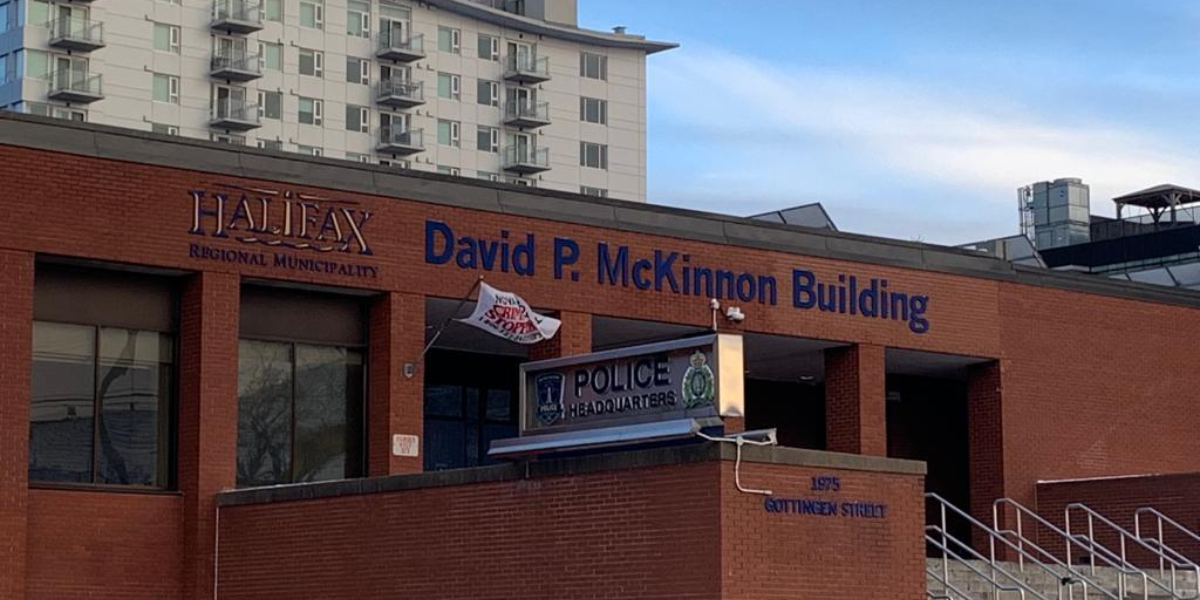A group of businesses, organisations, and community members have published an open letter calling on Halifax Regional Council to reject a $5.79 million increase to the Halifax Regional Police (HRP) annual budget.
The increase was recommended by the Halifax Board of Police Commissioners – the body that oversees the HRP – and would be a 6.3% increase from the 2023-2024 operating budget of $92,345,000, amounting to $98,132,100 if granted.
In a presentation to Halifax Regional Council in November, the recommendation listed factors like population growth, an increase in emergency events (like large scale gatherings), and an increase in police-reported criminal activity. The recommendation includes 18 new constables, 12 of whom would be assigned to respond to mental health related calls.
Halifax Regional Council to vote in February
Nancy Hunter, a signatory on the letter, said that the recommendation is likely to be moved and voted on at a Halifax Regional Council meeting in February, most likely on February 7.
If the motion passes, then the funding increase will go ahead as recommended. If the motion does not pass, then the recommendation will go back to the Board for reconsideration. Hunter says that having regional councillors reject the recommendation would be an important step toward building democratic accountability of police.
Preventing public consultation
The open letter gives examples of barriers to engagement at consultations held by the Board, including a lack of American Sign Language (ASL) interpretation despite requests, lack of accommodation for survivors of police violence, disparaging remarks made by a Board Commissioner against the public, stigmatising language against unhoused people being allowed to continue, and censorship of people speaking critically of the police.
These barriers to engagement, the letter says, render the consultation process and the recommendation illegitimate. The inaccessibility of the meetings to the public and the disregard for public input make the Board’s recommendation undemocratic and worth opposing at regional council.
Beyond public consultation
Beyond using an undemocratic process, the Board’s recommendation goes against latest research about the role of law enforcement in public safety.
In January 2022, the Board’s Subcommittee to Define Defunding the Police released its report ‘Defunding the Police: Defining the Way Forward for HRM’. The Subcommittee and its report was a response to the Black Lives Matter movement and mass demonstrations against recurring and systemic cases of police violence.
In the report, the Subcommittee calls for reforms aimed at “detasking” police and “retasking” to more appropriate community service providers. It presents research on how promoting safety, navigating conflict, and responding to incidents can be done more effectively without involving law enforcement. It also recommends financial reforms “encouraging public participation in municipal budgeting, with the ultimate intention of decreasing budgetary allocations to police and increasing allocations to community-based social services.”
Policing is not the answer
The idea that we cannot police our way out of societal problems is well researched and becoming more common sense. The open letter says that this was a popular view expressed at the Board’s public consultation meetings. An overwhelming majority of speakers, the letter says, advocated against increases to the police budget for reasons similar to those outlined in the Defunding the Police report.
The deadliest shooting rampage in Canadian history confirms this view. In March 2023 the Joint Federal/Provincial Commission into the April 2020 Nova Scotia Mass Casualty released their findings in a report, ‘Turning the Tide Together: Final Report of the Mass Casualty Commission’. The Commission outlined all of the ways that law enforcement failed to prevent and respond effectively to the shootings and arson attacks by Gabriel Wortman in parts of Nova Scotia on April 18 and 19, 2020.
Similar to the Defunding the Police Report, the Final Report of the Mass Casualty Commission emphasises the importance of community-based services to preventing and responding to dangerous incidents. They both say that providing basic needs like housing and healthcare help to address the root causes of dangerous behaviour, and that community-based services are best positioned to respond during and after dangerous incidents.
“The HRP’s requested budget increase elevates a police-based approach to responding to mental health calls and social inequity issues at a time when there’s been repeated demands to prioritise community-based approaches,” says Dr. Jamie Livingston, an Associate Professor of Criminology at Saint Mary’s University and a signatory on the open letter. “Investing in a broad spectrum of community-led, civilian-delivered programs,” Dr. Livingston says, “aligns with community values and supports the municipality’s priorities as are articulated in the Public Safety Strategy,”
Community, not cops
The open letter has 800 signatures, including 718 community members and 82 businesses and organisations. Supporting organisations include Adsum for Women and Children, Coverdale Justice Society, Elizabeth Fry Society, and the North End Community Health Centre, as well as the Halifax-Dartmouth & District Labour Council, the local body of the Canadian Labour Congress representing over 30,000 unionised workers in the region.
The letter is now closed for signing, and people can contact regional councillors to tell them to vote against the recommendation. People who live in the Halifax Regional Municipality can find regional councillors with this Councillor Contact List and this list of Current Polling District Boundaries, and by entering an address into this District Look-Up page. HRM councillors may be more receptive now given that there is a municipal election in HRM coming up on October 19. Campaign updates and calls-to-action from Community Not Cops will be posted on Twitter/X and Instagram.
Did you like this article? Help us produce more like it by donating $1, $2, or $5. Donate

